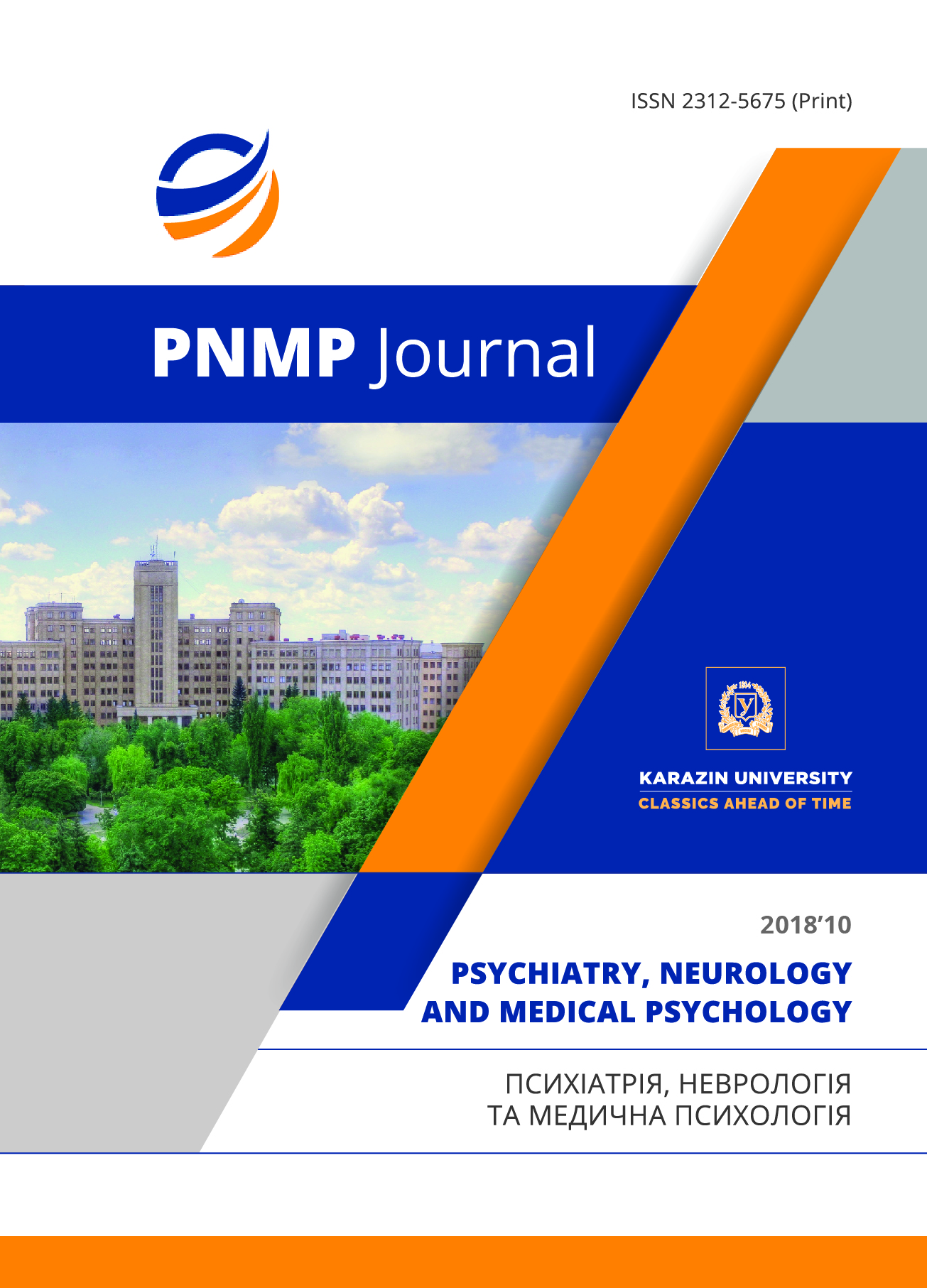Coping patterns for nosogenic factors of psychotraumati¬zation among patients with psychoendocrine syndrome
Abstract
In order to establish patterns and coping strategies in relation to the nosogenic factors of psychotraumatization among the patients with psychoendocrine syndrome on the background of metabolic disorders of the thyroid gland, adrenal cortex and hypogonadism, at the Ukrainian Scientific and Practical Center for Endocrine Surgery, Transplantation of Endocrine Organs and Tissues of the Ministry of Health of Ukraine, 400 patients with the indicated forms of endocrine disorders were examined. The study was conducted with the introduction of the psychodiagnostic method and the Lazarus copying test was used in the study of group comparison. Coping patterns were studied in relation to such factors: the formation of functional and morphological disorders, the presence of a chronic disease, physical activity restrictions, the presence of severely experienced symptoms of the disease, the need for treatment with drugs that have side effects, which adversely affect the state, cancerophobic experience, introspective cognitive and mental disorders, the need for diagnostic procedures and therapeutic measures with high cost, presence of labor restrictions which causes financial difficulties and loss of economically dominant role in the family, limiting the circle of communication, is associated with the presence of the disease or its symptoms, the need to follow a diet, refusal from alcohol and any stimulating substances, and dependence on hormone replacement therapy.
Downloads
References
Жабенко Е. Ю. Особенности психических и психосоматических расстройств при психоэндокрин- ном и метаболическом синдромах // Украинский неврологический журнал. – 2012. – №. 1. – С. 62–65.
Коростій В. І. Клінічні та нейропсихологічні особливості когнітивних розладів серед хворих з ендокринними захворюваннями. – Український вісник психоневрології. – 2012. – № 1 (70). – С. 44.
Feldman HA, Longcope C, Derby CA, et al. : Age trends in the level of serum testosterone and other hormones in middle-aged men: longitudinal results from the Massachusetts male aging study. J Clin Endocrinol Metab. 2002;87(3):589–98.
Gelhorn H. L., Roberts L. J., Khandelwal N. et al. Psychometric Evaluation of the Hypogonadism Impact of Symptoms Questionnaire Short Form (HIS-Q-SF) // J Sex Med. 2017. № 14 (8). P. 1046 1058.
Hayes R. P., Ni X., Heiselman D. E. et al. Psychometric testing of two new patient-reported outcome instruments for the evaluation of treatment for hypogonadism // Int J Clin Pract. 2016. № 70 (7). P. 587–595.
Nieschlag E, Swerdloff R, Behre HM, et al. Investigation, treatment and monitoring of late onset hypogonadism in males. Aging Male. 2005;8:56–8.
Rosen R. C., Wu F., Behre H. M. et al. Quality of Life and Sexual Function Benefits of Long Term Testosterone Treatment: Longitudinal Results From the Registry of Hypogonadism in Men (RHYME) // J Sex Med. 2017. № 14 (9). P. 1104–1115.
Sumi i K., Miyake H., Enatsu N. et al. Prospective assessment of health-related quality of life in men with late-onset hypogonadism who received testosterone replacement therapy // Andrologia. 2016. № 48 (2). P. 198–202.

